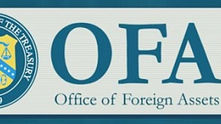Proposed Amendment to Autonomous Sanctions Regulations: Strengthening Measures for Iran
|
The Department of Foreign Affairs and Trade (DFAT) has announced amendments to the Autonomous Sanctions Regulations 2011 (Cth), specifically targeting Iran. DFAT's primary role is to advance Australia's interests globally, promote security and stability, foster economic growth, and engage with other countries and international organizations.
These amendments aim to expand item 4, regulation 6 of the existing sanctions regime, introducing additional listing criteria. The primary focus of these amendments is to address the general oppression of the Iranian population, particularly women and girls, and combat the undermining of good governance and the rule of law.
Additionally, the amendments target Iranian persons and entities and those backed by Iran engaging in activities threatening the sovereignty or territorial integrity of countries other than Iran.
Importance of the Amendment
The proposed amendment reflects the Australian government's commitment to promoting human rights, supporting global stability, and addressing situations of international concern. By expanding the autonomous sanctions regime, Australia aims to hold accountable those who contribute to the oppression and instability within Iran and beyond.
This amendment aligns with the international community's efforts to discourage malign activities and protect the rights and well-being of affected populations.
The new listing criteria introduced by the amendment will enable the identification and listing of Iranian persons, entities, and individuals supported by Iran, involved in activities that undermine the sovereignty or territorial integrity of countries other than Iran. By including these criteria, the Australian government seeks to disrupt and deter actions contributing to instability and international norms' violation.
Legal Basis and Impact
The amendment to the Autonomous Sanctions Regulations 2011 falls within the framework of the Autonomous Sanctions Act 2011. It is important to note that this amendment does not affect the structure or publication of data by the authority responsible for maintaining the sanction regime. However, once the amendment is approved, further research on the legal basis will be required to ensure compliance with the updated regulations.
Explanatory Statement
The proposed amendment is supported by an Explanatory Statement, which outlines the changes and their justifications. The statement provides detailed insights into the intent behind the amendment and the considerations. You can find the Explanatory Statement and Statement of Compatibility with Human Rights on the official Department of Foreign Affairs and Trade (DFAT) here.
Interested stakeholders were encouraged to submit via email or post to the provided addresses during the public consultation. This approach aimed to facilitate a comprehensive examination of the proposed amendments, ensuring that the government received diverse insights and expertise.
Active participation in the consultation process allowed individuals and organizations to contribute their perspectives and help shape the future of Australia's autonomous sanctions regime. By engaging in the consultation, stakeholders were crucial in working towards a more just and stable world.
Final Thoughts
The proposed amendment to the Autonomous Sanctions Regulations demonstrates Australia's commitment to addressing international concerns and promoting human rights. By expanding the listing criteria for Iran, the Australian government aims to contribute to the protection of vulnerable populations and reinforce the principles of good governance and the rule of law.
The amendment will be published in due course, following the necessary processes and considerations. Once published, the new law will contribute to shaping Australia's autonomous sanctions regime, ensuring a more robust sanctions regime.
Stay informed and ahead of the curve in the dynamic world of sanctions
As a Compliance Officer or Chief Compliance Officer, understanding how sanctions regimes work is vital to mitigating the risk of non-compliance in your organization.
Keep up with the sanctions world with our monthly case study analysis to help you make decisions in comparable circumstances.
Contact us at info@pst.ag for more information.



